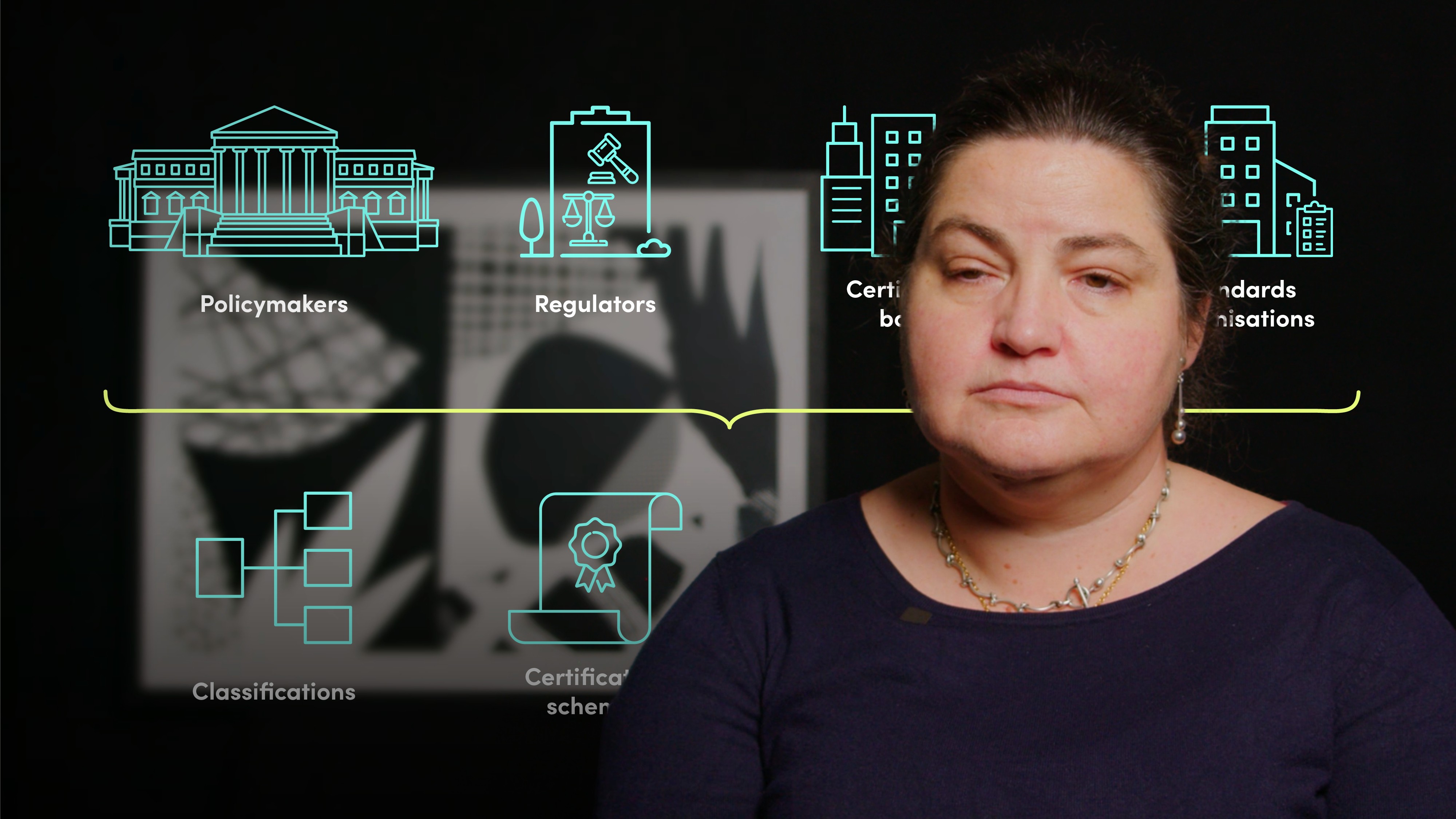
Introduction to Real Estate Frameworks and Certifications

Philippa Gill
20 years: Real estate investment
In this video, Philippa covers the importance of sustainability in the real estate sectort. She also explains various certification schemes, frameworks and tools that have been developed to codify sustainability in the sector.
In this video, Philippa covers the importance of sustainability in the real estate sectort. She also explains various certification schemes, frameworks and tools that have been developed to codify sustainability in the sector.

Introduction to Real Estate Frameworks and Certifications
7 mins 44 secs
Key learning objectives:
Understand how and why the real estate sector can play a key role in the transition to net zero
Outline the purpose of frameworks and certification schemes
Overview:
The real estate sector contributes 40% of global greenhouse gas emissions and can play a vital role in achieving net-zero. Certifications and frameworks developed by policymakers, regulators, and standards organisations define sustainability and are crucial for professionals, financiers, and investors. Frameworks and certification schemes are tools used to define sustainability in real estate. Frameworks provide a general overview of sustainability and governance issues across all sectors, while certification schemes cover environmental and economic benefits such as reduced energy and water consumption and increased property value at the building level. These certifications are not mandatory but widely recognised as valuable tools to show commitment to sustainability and are often a prerequisite for investors and the occupier community.
How can the real estate sector play a role in the transition to net zero?
The real estate sector is a crucial part of the transition to net zero as it accounts for 40% of global greenhouse gas emissions. Policymakers, regulators, and certification bodies have developed frameworks and certification schemes that define what constitutes sustainability in real estate. It's important for professionals, bankers, and financiers to understand how these tools apply to different parts of the building life cycle and ownership structure. Real estate companies have accounted for a meaningful percentage of global green bond issuance recently, making it vital for institutional investors to have a suite of tools to allocate capital to best-in-class ESG performers.
What are the most common frameworks?
The real estate industry is divided into Frameworks and Certifications. Some Frameworks, such as Principles for Responsible Investment and Task Force on Climate-related Financial Disclosures, are not specific to real estate but provide an overview of sustainability and governance issues across all sectors.
More real estate-specific Frameworks, such as GRESB and EPRA, offer a focused approach but have differences in purpose and output. Frameworks also address corporate or fund level entities and collect information on how building level certifications are used.
What do the different certifications mean?
Building owners and managers may choose more than one certification for an asset, especially for trophy projects aimed at global occupiers.
Certifications like BREEAM and LEED are excellent construction standards, but their scope is limited to specific stages of a building's life cycle. Sustainable building schemes address energy management, design and efficiency, renewable sourcing, ventilation, and GHG emissions.
The WELL Building Standard, for instance, emphasises the health and well-being of building occupants. The certification process involves meeting specific criteria and using the scheme's branding to showcase sustainability and energy efficiency.
While not mandatory, certifications demonstrate a commitment to sustainability and offer numerous environmental and economic benefits. Nonetheless, there is no clear link between most certifications and actual climate resilience, and industry organisations are developing net-zero definitions and certification schemes.

Philippa Gill
There are no available Videos from "Philippa Gill"

